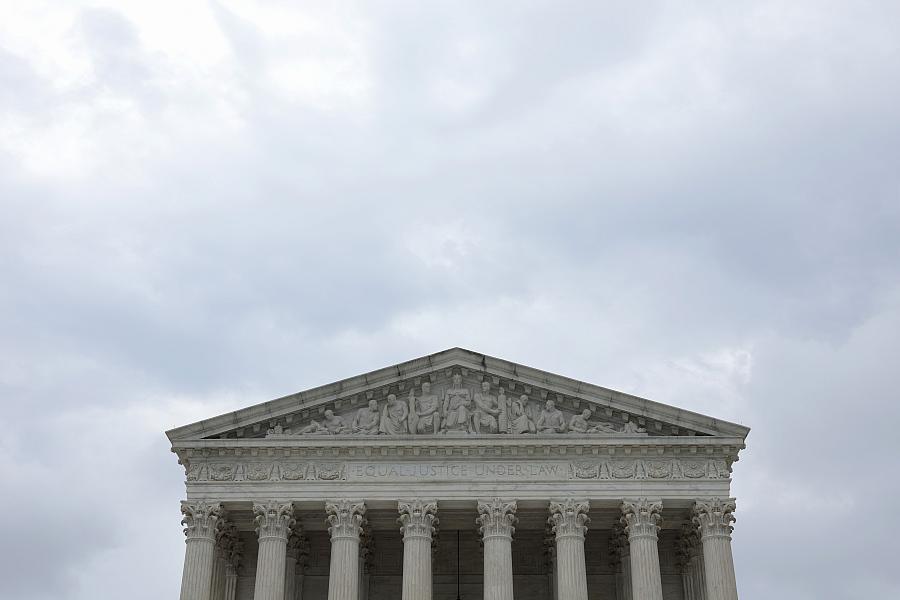How a Supreme Court decision on tribal sovereignty became a story about mental health

Photo by Anna Moneymaker/Getty Images
After the Supreme Court issued its decision in McGirt vs. Oklahoma in July 2020, tribal nations in the state and beyond celebrated. Finally, the High Court recognized what the Muscogee Nation knew all along: that their reservation had not been disestablished by statehood in Oklahoma; only Congress has the power to disestablish a tribe's status.
You may be thinking: How can a legal decision have an impact on the mental health of tribal citizens? My stories for the USC Center for Health Journalism 2021 National Fellowship gave readers and listeners a glimpse of that impact.
The McGirt decision is not about giving land back to the Muscogee Nation or five other tribal nations in the state that later applied the ruling in their own cases. The decision is more about the right of tribal nations to control their own justice systems and environmental conditions.
The decision means tribal nations have the ability to control police and emergency response to citizens within reservation boundaries, and the treatment of those who encounter law enforcement.
In my project, I discussed the intersection of law enforcement and mental health when I profiled a police department run by the Choctaw Nation that utilized a mental health worker to accompany officers, and when I described how the Cherokee Nation used money from a landmark opioid settlement to build a behavioral health center and a harm reduction program.
Before the McGirt decision, tribal nations received billions of dollars in American Rescue Plan Act (ARPA) funds. The Cherokee Nation, alone, received over $3 billion.
The money was critical when Indigenous communities were severely impacted by the COVID-19 pandemic. It helped ensure that employees in government and businesses within the tribal nations got paid so they could keep food on the table, keep the lights on in their homes and care for their families.
Tribal nations also invested in mental health care as their responsibilities for public safety grew because of the McGirt decision. They saw this as a new opportunity to provide treatment rather than just policing and incarceration.
Muscogee Nation broke ground on a multimillion-dollar behavioral health care facility in 2021, which opened in 2022. The Choctaw Nation added mental health and substance abuse staff and hired a behavioral health/public safety liaison, Bryan Rowley, who I focused on in my story.
The Cherokee Nation used funds from the opioid settlement and ARPA to expand treatment for mental health and drug addiction.
When I started reporting on this topic, I knew that tribal nations in Oklahoma were trying to fill the gaps in their communities that state mental health programs could not. While the people who work for tribal nations are part of the government, they see the effects of drug use and behavioral health issues in an intimate way. It's their brother, a cousin or maybe they themselves who have struggled.
I thought it would be easy to get access to people willing to talk to me about addiction and ongoing issues with mental health care within the tribal nations. But I encountered many barriers. For one thing, access to this information is limited and controlled by those working on the public relations and strategy side within the tribe.
Also, there is still such a stigma in talking about mental health care needs and struggles, despite these big investments and messaging from health care officials within the tribe to counter that stigma. Many people I spoke with wanted to remain on background or anonymous, which is hard when you are trying to put together a story that sheds light on mental health in Indigenous communities and helps those in policy understand the enormous need for help.
Oklahoma has tried to bolster its mental health programs through two state questions passed in 2016. SQ 280 reduced prison time for low-level drug offenses and SQ 281 diverted the money spent on incarceration for such offenses into mental health care.
The process is fraught and the formula for allocating the money for mental health care has been dragged through the state legislature. As I was reporting for my USC project, the Oklahoma Policy Institute reported that after more than five years, voters are still waiting for that money to be spent on mental health care in the state.
Tribal nations, which are located in some of the poorest and most remote areas in the state, are doing their best to fill gaps in service. Now they are at a critical crossroads.
It's been three years since the landmark McGirt decision, which was lauded as a victory for tribal sovereignty, asserted that tribal nations have the authority to maintain criminal as well as civil jurisdiction over their citizens. With increased control over Native offenders, tribal nations have an opportunity to create more diversion and rehabilitation programs that rely on cultural traditions. Both the Cherokee and Chickasaw Nations have taken important steps forward, but it will take more investment from the Department of Justice and full funding of tribal criminal justice systems to improve outcomes for citizens.

